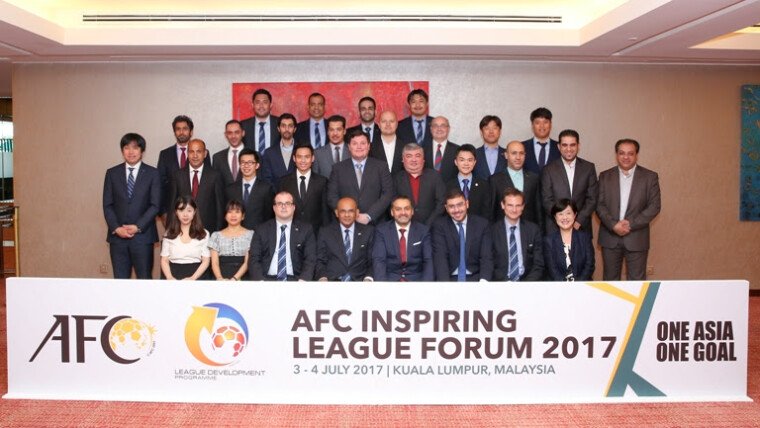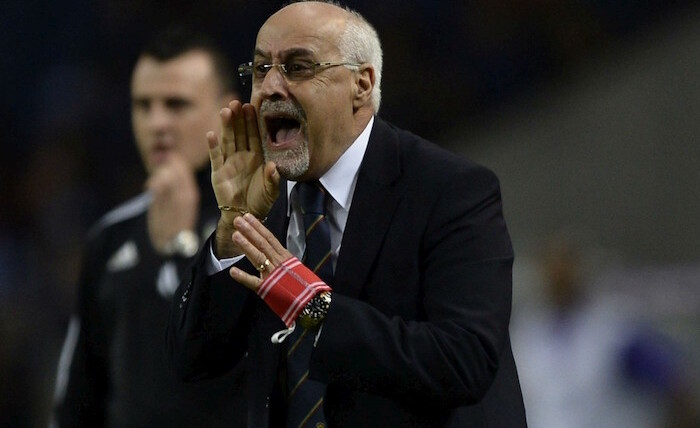A breathtaking beginning to this season’s Bundesliga has been brought about by blistering performances from home-grown stars and imported talent, with the division’s Japanese and South Korean contingent among those excelling.
It has been some time since Japan’s Yasuhiko Okudera became the first Japanese star to grace the European game at 1. FC Köln and Bum-Kun Cha of South Korea debuted for Eintracht Frankfurt. Yet the Bundesliga continues to enthral the world over, thanks, in part, to the presence of some of Asia’s best players in Germany’s top-flight.
Frankfurt and Hertha Berlin are just two of the teams tugging at the tails of frontrunners RB Leipzig and FC Bayern München. Helping Hertha scale the heights is Japanese wide midfielder Genki Haraguchi, who has started 12 of the Old Lady’s 13 league matches this season. “Genki has made a huge step forward; he’s really impressed me,” team-mate Sebastian Langkamp recently said of the former Urawa Reds star.
Meanwhile, Haraguchi’s international team-mate, Makoto Hasebe, has played an integral role in the centre of an Eintracht back three, the formation that has aided in the Eagles’ determined drive up the Bundesliga standings. ‘Hasi,’ as Hasebe is known among his team-mates, has played in ten of Eintracht’s twelve Bundesliga games this term – winning 55 per cent of his challenges – all the while captaining Japan in their FIFA World Cup qualifying campaign.
In the versatile Yuya Osako, 1. FC Köln have a reformed forward currently enjoying his best season in Germany’s top flight to date. Scoring in successive Bundesliga outings against FC Schalke 04 and leaders RB Leipzig, while attempting 17 shots on goal and providing two assists in the current campaign, demonstrate Osako’s focus on Köln’s cause.
Shinji Kagawa and Joo-Ho Park are doing their utmost to impress Thomas Tuchel at Borussia Dortmund. Playmaker Kagawa has had a hand in 63 goals in 112 Bundesliga appearances over two separate spells with the Black Yellows, while Park earned his move to the SIGNAL IDUNA PARK off the back of 44 league outings for 1. FSV Mainz 05.
Injuries continue to hamper Japanese duo Atsuto Uchida of FC Schalke 04 and Mainz’s Yoshinori Muto – the latter only the second Japanese player to score a hat-trick in the Bundesliga – but their compatriot, full-back Gotoku Sakai, has been ever-present for Hamburger SV. Indeed, the 25-year-old was recently afforded the privilege of being named HSV captain, a role the former VfB Stuttgart player described as “a great honour” and in which he promised to help bring “more stability” to the Red Shorts.
FC Augsburg’s Asian charges boast interesting links with FC Bayern München. Attacking midfielder Takashi Usami was once on the books of the Bundesliga’s reigning champions. The 24-year-old has featured just twice for Augsburg this term, having been laid low by a tendon injury at the start of the campaign.
Korean midfielder Ja-Cheol Koo has picked up far more game time at the WWK Arena, even scoring against Bayern in a 3-1 home loss. Koo’s international team-mate, Dong-Won Ji – a scorer of ten goals in 43 appearances for South Korea – also registered against Carlo Ancelotti’s team as Augsburg lost to Bayern in the DFB Cup.
Much like in Japan and South Korea, the Bundesliga is also seen as the promised land in China. The first of three Chinese players to appear in the Bundesliga, Yang Chen went on to enjoy a memorable stay at Frankfurt, winning his country’s Player of the Year award in 2000. Shao Jiayi followed, pulling on the shirts of TSV 1860 Munich and FC Energie Cottbus, before Hao Jumin won the 2010/11 DFB Cup with Schalke.
Other posts by FO Newsdesk










